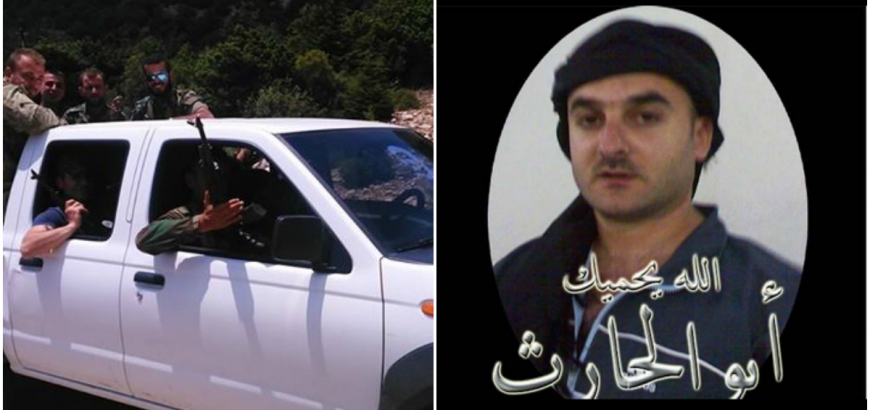As one of the most prominent militias deployed on the Syrian coast, the Al-Areen 313 (Abou Harith) Brigades carry out mafia activities with a green light from the head of the Assad regime. Outside the oversight of regime security branches, the paramilitary group – comprised largely of criminals and drug dealers – is used as a tool of terrorism and repression over opposition activists and loyalists alike, in a shift reflecting the increasing power of militias and their dominance of the coast.
But who is Abou Harith after whom the militia is named?
An Alawite activist in the Syrian coast, who asked not to have his name published for fear of his life, told Alsouria Net that the militia's headquarters is in Qardaha (the Assad family’s hometown) and is led by Yasar Talal al-Assad, born 1977, who is also known as Abou Harith.
The activist indicated that Yasar al-Assad is known by many as a bloodthirsty person, addicted to drugs and convicted of a number of crimes and felonies, including murder and armed robbery. He said that “merely mentioning his name spreads terror in the hearts of many because of his endless crimes.”
The number of members of his loyal paramilitary group is estimated at about 2,000 people, and is armed by Rami Makhlouf, President Bashar al-Assad’s cousin, through the Al-Bustan Association.
According to the source, the militia's work includes blackmailing wanted people or those who are evading military service in Assad’s forces. Its members are known to form random checkpoints on the highway and public roads to stop passing cars. Those who are fleeing or are wanted for service are subjected to insults and beatings, and are then detained at one of the military's security branches. A captured young man will escape a dark fate only if his family has the necessary amount to pay to free their son, sometimes reaching up to 20 million Syrian pounds.
Rahef, an Alawite opposition journalist and activist, told Alsouria Net: “It is well known in Lattakia that this armed mafia carries out all types of terrorism, including killing, kidnapping, blackmail and theft, and does not go to areas where there is fighting until after the regime forces have entered in order to loot houses or shops in local bazaars after the owners have fled.”
Rahaf added: “For those who have something stolen from them [like a car], and this is an occurrence that has become common for many, the first advice they get is call one of the Abou Harith shabeeha. In most cases they will have the car and they will go to them and pay a considerable amount to recover it. If the owner of the car refuses to pay, it will be sold in the car market.”
This article was translated and edited by The Syrian Observer. Responsibility for the information and views set out in this article lies entirely with the author.


